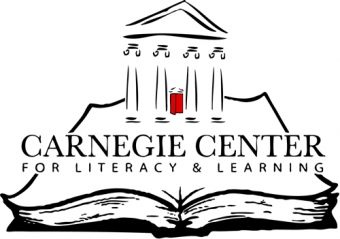- Education Topics
- Achievement Gap
- Alternative Education
- American Education Awards
- Assessment & Evaluation
- Education during COVID-19
- Education Economics
- Education Environment
- Education in the United States during COVID-19
- Education Issues
- Education Policy
- Education Psychology
- Education Scandals and Controversies
- Education Reform
- Education Theory
- Education Worldwide
- Educational Leadership
- Educational Philosophy
- Educational Research
- Educational Technology
- Federal Education Legislation
- Higher Education Worldwide
- Homeless Education
- Homeschooling in the United States
- Migrant Education
- Neglected/Deliquent Students
- Pedagogy
- Sociology of Education
- Special Needs
- National Directories
- After School Programs
- Alternative Schools
- The Arts
- At-Risk Students
- Camps
- Camp Services
- Colleges & Universities
- Counties
- Driving Schools
- Educational Businesses
- Financial Aid
- Higher Education
- International Programs
- Jewish Community Centers
- K-12 Schools
- Language Studies
- Libraries
- Organizations
- Preschools
- Professional Development
- Prom Services
- School Assemblies
- School Districts
- School Field Trips
- School Health
- School Supplies
- School Travel
- School Vendors
- Schools Worldwide
- Special Education
- Special Needs
- Study Abroad
- Teaching Abroad
- Volunteer Programs
- Youth Sports
- For Schools
- Academic Standards
- Assembly Programs
- Blue Ribbon Schools Program
- Educational Accreditation
- Educational Television Channels
- Education in the United States
- History of Education in the United States
- Reading Education in the U.S.
- School Grades
- School Meal Programs
- School Types
- School Uniforms
- Special Education in the United States
- Systems of Formal Education
- U.S. Education Legislation
- For Teachers
- Academic Dishonesty
- Childcare State Licensing Requirements
- Classroom Management
- Education Subjects
- Educational Practices
- Interdisciplinary Teaching
- Job and Interview Tips
- Lesson Plans | Grades
- Professional Development
- State Curriculum Standards
- Substitute Teaching
- Teacher Salary
- Teacher Training Programs
- Teaching Methods
- Training and Certification
- For Students
- Academic Competitions
- Admissions Testing
- At-Risk Students
- Career Planning
- College Admissions
- Drivers License
- Educational Programs
- Educational Television
- High School Dropouts
- Higher Education
- School Health
- Senior Proms
- Sex Education
- Standardized Testing
- Student Financial Aid
- Student Television Stations
- Summer Learning Loss
The Carnegie Center for Literacy and Learning

Basic Information
Address: 251 W. Second Street
Lexington, KY 40507
Phone Number: (859)254-4175
Action Shots
* There are currently no photos associated with this listing.
Additional Information
Causes Served: Education, Literacy, Children
Background Check: Yes
Population Served: Community Members of All Ages
Ages for Volunteer: 15-
Hours of Service: Monday-Saturday
Minimum Hours Required: 1
Mission Statement:
The mission of the Carnegie Center for Literacy and Learning is to create and support programs that foster literacy and learning as a lifelong process for all citizens.
Program History:
The Carnegie Center is a non-profit family learning center devoted to helping all citizens improve their quality of life. Our open-door policy invites people young and old to learn something new. We offer seasonal classes in Writing, Computer Literacy, and Language; tutoring for students grades K-12; vibrant youth and family programs and exhibits, readings, and other arts-related events designed to encourage among Central Kentuckians an appreciation for all art forms and for learning in general.
Additional Information:
We are currently recruiting tutors for our yearlong tutoring program. Be a mentor to a child for an hour each week! Help make learning fun for a child.
Contact the volunteer coordinator, Kari Walker at volunteer@carnegieliteracy.org with interest or questions.

